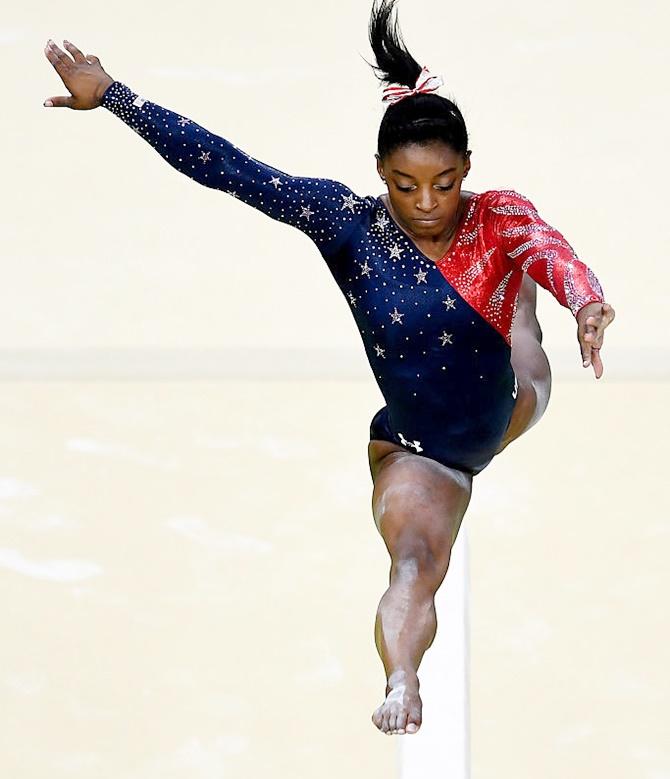

Confidential athlete medical data relating to last month’s Rio Olympics has been hacked and published by a Russian cyber espionage group with the threat of more to come, the World Anti-Doping Agency (WADA) said on Tuesday.
It identified the group as Tsar Team (APT28), also known as Fancy Bear.
The www.fancybear.net website said it had information about a number of US athletes, including tennis sisters Serena and Venus Williams as well as multiple gold medal-winning gymnast Simone Biles.
Claiming to have accessed WADA’s database, Fancy Bears’ hack team said they have leaked dozens of files allegedly relating to United States athletes on the internet, according to media reports.
“After detailed studying of the hacked WADA databases we figured out that dozens of American athletes had tested positive,” the Fancy Bears’ group claimed on its website.
“The Rio Olympic medallists regularly used illicit strong drugs justified by certificates of approval for therapeutic use,” it said.
“In other words they just got their licenses for doping. This is other evidence that WADA and IOC’s Medical and Scientific Department are corrupt and deceitful.”
“As predicted, the USA dominated the 2016 Olympics medal count with 46 gold, 37 silver, 38 bronze for 121 total. The US team played well but not fair.”
According to the Fancy Bears’ group, Serena was allowed to take banned substances such as oxycodone, hydromorphone, prednisone and methylprednisolone in 2010, 2014 and 2015.
Venus was allowed to take prednisone, prednisolone and triamcinolone among others in 2010, 2011, 2012 and 2013.

Biles, who won four gold medals in the 2016 Olympics in Rio, tested positive for methylphenidate in August, but she was not disqualified. In 2013 and 2014, she was allowed to take dextroamphetamine, the group stated.
Meanwhile, WADA’s director general Olivier Niggli was quoted as saying that hackers have been trying to break into agency’s website on a daily basis over the past three weeks.
“WADA condemns these ongoing cyber-attacks that are being carried out in an attempt to undermine WADA and the global anti-doping system,” said director general Olivier Niggli in a statement that did not name any athletes.
“WADA has been informed by law enforcement authorities that these attacks are originating out of Russia.”
Russian news agencies quoted Kremlin spokesman Dmitry Peskov as saying any possible Russian government or secret service participation in the hacking was “out of question”.
Russia’s track and field team, with the exception of one athlete based in the United States, were banned from the Rio Games in August over what WADA said was a state-backed doping programme.
Russian competitors in other sports also had to prove they were clean by meeting several criteria to be eligible to compete in Brazil.
The fancybear.net website said the group had hacked the WADA databases and would start by releasing exclusive information on the US team followed later by other national Olympic teams.
WADA said the group was believed to have gained access to its anti-doping administration and management system (ADAMS) via an International Olympic Committee-created account for the Rio Games.

Data accessed included so-called Therapeutic Use Exemptions (TUE) issued by sports federations and national anti-doping organisations that allow athletes to take certain substances.
“WADA deeply regrets this situation and is very conscious of the threat that it represents to athletes whose confidential information has been divulged through this criminal act,” said Niggli.
“We are reaching out to stakeholders… regarding the specific athletes impacted.”
Niggli added that the hack was “greatly compromising the effort by the global anti-doping community to re-establish trust in Russia further to the outcomes of the Agency’s independent McLaren Investigation Report.”
The McLaren report described, among other things, how Russians were replacing positive doping samples with clean ones during the Sochi winter Games with the support of the Russian secret service.
WADA revealed last month that Russian whistleblower Yulia Stepanova’s electronic account had been illegally accessed with a “perpetrator” obtaining details which would normally include her registered whereabouts.
Stepanova, in hiding in North America, helped reveal the biggest state-backed doping programme in Russia and was forced to flee the country with her husband for fear of her life.
[source;rediff.com]




